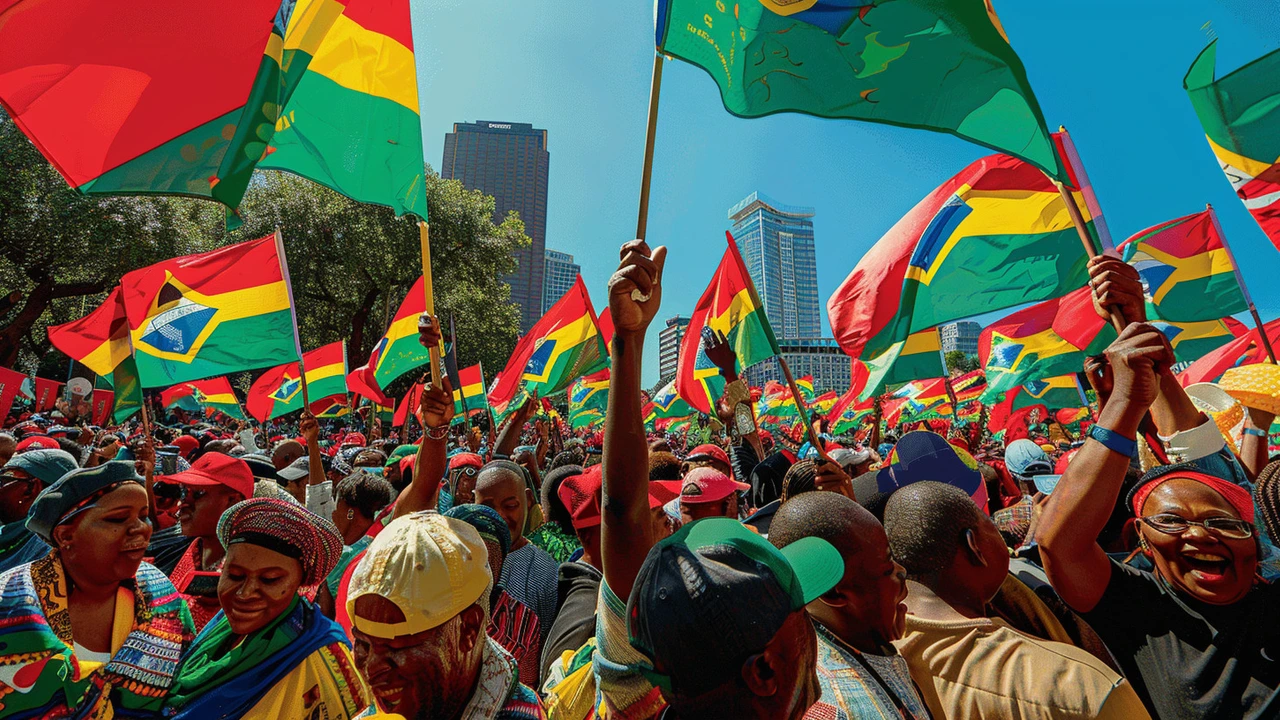South Africa’s Coalition Government Faces Challenges as President Ramaphosa Takes Office
President Ramaphosa’s New Challenges in South Africa’s Government
With the recent elections behind them, South Africa finds itself in the throes of political complexity as President Cyril Ramaphosa officially assumes his role. Although his party, the African National Congress (ANC), has secured the largest share of votes, it didn’t achieve the majority needed to govern alone. This shortfall has led the ANC to forge alliances with the Economic Freedom Fighters (EFF) and the Democratic Alliance (DA) in a bid to form a functioning coalition government.
Early Disagreements and Unresolved Issues
No sooner had Ramaphosa taken his seat than the squabbling began. The coalition partners are already bickering over key positions within the government. The EFF, under the leadership of Julius Malema, is demanding a more substantial share of ministerial posts. The DA is likewise asserting its influence, particularly aiming to command key portfolios related to finance and economic development. Such high-stakes jostling is threatening the stability of the new administration.
The challenge before Ramaphosa is to balance these conflicting interests. His ability to maintain coalition harmony is critical for the government to function cohesively. Given South Africa's pressing economic issues, this coalition must work together effectively to implement much-needed policies and reforms.
The Struggle for Ministerial Posts
The heart of the coalition’s contention lies in the allocation of ministerial positions. The EFF wants to seize this opportunity to increase its influence by pushing for more prominent roles within Ramaphosa’s cabinet. They have their sights set on several strategic ministries, including those related to land reform and national security, areas where they have strong ideological commitments.
The DA, on the other hand, is focusing its energy on securing pivotal roles in the finance and economic development sectors. They argue that their expertise is crucial to steward South Africa’s economy through its current challenges. With high unemployment rates and economic disparities, the financial portfolios are attractive positions for any party wishing to make a significant impact.
Ramaphosa’s Balancing Act
President Ramaphosa is no stranger to political maneuvering. Yet, the dynamics of his new coalition government present an intricate puzzle. He must deftly manage the expectations and demands of the ANC, EFF, and DA, all while ensuring that the government remains functional and effective. The President's task is particularly daunting given the weight of public expectation resting on his administration’s shoulders.
Political analysts warn of the precarious nature of the coalition. The stability of Ramaphosa’s government is paramount, not only for the implementation of his policy agenda but also for the broader goal of restoring economic stability in South Africa. Any prolonged disputes or persistent instability could weaken public confidence in the government and hamper efforts to address pressing national issues.
Economic and Social Implications
The coalition’s ability to work together—and the success of Ramaphosa’s government more broadly—will have profound implications for South Africa. The nation is grappling with significant economic challenges, such as high unemployment rates, widening economic disparities, and a sluggish growth rate.
Furthermore, social issues like crime, education reform, and healthcare are pressing concerns that require effective government intervention. The bitter wrangling over ministerial posts is more than just political theater; it holds real consequences for the efficacy of the government’s response to these issues.
The Path Forward
As Ramaphosa navigates these tumultuous waters, his leadership will be put to the test. South Africa’s citizens are watching closely, hopeful yet wary, of how this new government will steer the country forward. The President’s ability to harmonize the coalition’s diverse interests and drive a unified policy agenda will be crucial for the nation’s future.
There’s a palpable sense of urgency surrounding Ramaphosa’s coalition as it takes its first steps. The leadership and unity demonstrated in these initial phases could well set the tone for the entirety of the administration’s term. The stakes are high, and the world is also watching, eager to see if South Africa can navigate this period of political complexity and emerge stronger on the other side.
